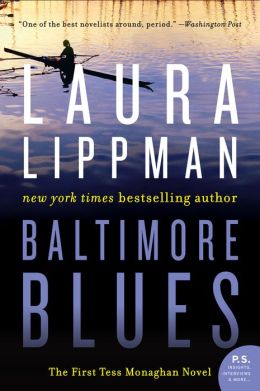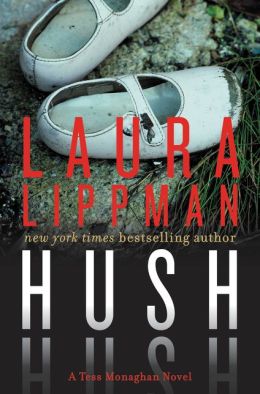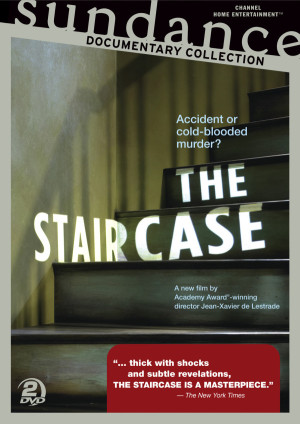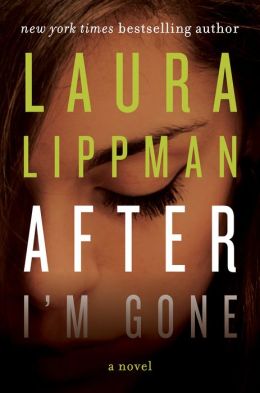From the Booking Desk:
It is my great honor and privilege to welcome Laura Lippman to BOLO Books today. I have to confess that as a native Baltimorean, having Laura here on the blog is a bit like discovering the Holy Grail. That said, I think you all are going to love how candid and open she is during this interview. Ladies and Gentleman, I present to you…Laura Lippman.
BOLO Books: Hush Hush is your first novel in several years to featuring Tess Monaghan as the main character. Did you always intended to return to Tess? And did you expect that any return to her character would have to be with a story in which the crime was attached to motherhood?
Laura Lippman: I expected to return, hoped to return, but I was resigned to the idea that I might have painted myself in a corner by making her a mother. Tess is far from the first mother in PI fiction. (And there are lots of fathers, too.) But my sense is that the people who read and like the Tess books would have very definite ideas about how she should behave and would be unforgiving if she took risks – or put her family at risk. I finally realized that was the story, how motherhood had affected this once impulsive woman.
 BOLO Books: The first Tess Monaghan book, Baltimore Blues, was published in 1997. Other than the obvious things such as getting older, marrying and having a child, how is Tess different now than she was back in that first novel?
BOLO Books: The first Tess Monaghan book, Baltimore Blues, was published in 1997. Other than the obvious things such as getting older, marrying and having a child, how is Tess different now than she was back in that first novel?
Laura Lippman: She’s gained a lot of confidence. She’s running a successful business. She’s aware of her strengths and weaknesses, but instead of berating herself for the weaknesses, she finds a partner who complements her.
BOLO Books: Similarly – and again, moving beyond the obvious – how are you different than you were back when you wrote Baltimore Blues?
Laura Lippman: I’m a lot more ambitious. Twenty years ago – which is roughly the time I sat down to write Baltimore Blues – I just wanted to survive writing a novel. Now I want to write better and better ones. In fact, I’ll be honest about my ambitions. I’d like to be one of those writers, such as Elmore Leonard and Sue Grafton, who make it look very easy.
BOLO Books: Throughout Hush Hush, Tess is constantly worried about how she is doing as a mother. She is worried not only about what others think, but what she herself thinks about her mothering skills. Do you think any mothers ever think they are doing it “right?”
 Laura Lippman: I’d be shocked if I ever met a self-aware person who thought she (or he) was a great parent. Because, for one thing, the job is never done. I’m relatively relaxed, partly because I’m older and partly because I feel like I turned out OK despite a childhood as a picky eater who watched too much television and almost certainly went to substandard schools. I’m answering these questions tonight before heading out to an informational meeting about a private school I’m considering down the road and the family friend who’s babysitting said: “You seem pretty relaxed about the school thing.” I am relaxed about the school thing and the eating thing. But I’m tightly wound when it comes to our schedule and I fret every day about my temperament. My daughter has been an angel as of late, but she put me through a very tough time this fall — and I am a de facto single mom while my husband is working out of town, Monday through Friday.
Laura Lippman: I’d be shocked if I ever met a self-aware person who thought she (or he) was a great parent. Because, for one thing, the job is never done. I’m relatively relaxed, partly because I’m older and partly because I feel like I turned out OK despite a childhood as a picky eater who watched too much television and almost certainly went to substandard schools. I’m answering these questions tonight before heading out to an informational meeting about a private school I’m considering down the road and the family friend who’s babysitting said: “You seem pretty relaxed about the school thing.” I am relaxed about the school thing and the eating thing. But I’m tightly wound when it comes to our schedule and I fret every day about my temperament. My daughter has been an angel as of late, but she put me through a very tough time this fall — and I am a de facto single mom while my husband is working out of town, Monday through Friday.
I mean, not to be self-indulgent — and certainly not to complain, I have a pretty cushy life — here’s my schedule. Up at 6:30. That gives me about 45 minutes to have a cup of coffee, ease into the day. Then I wake her and we have an hour to get up, eat breakfast, get out the door. School is 5 minutes away, thank god. Then I have 9-6 to work, work out and do whatever has to be done. I have an assistant, but only because I couldn’t find a part-time babysitter, so I hired a woman who helps me out for part of the day, then takes over my daughter 4-6. But I start dinner at 5, 5:30 because I want to maximize the time I spend with my daughter in the evening. So we sit down to dinner at 6 and it’s usually a pretty good one — tonight it was pork tenderloin with pomegranate and cauliflower gratin. Then bath time, book, a long back rub. And that’s life, Monday through Friday. The only thing that changes is the dinner menu. Tomorrow it’s beef-and-butternut tagine.
BOLO Books: Melisandre Harris Dawes, the character at the center of Hush Hush has become a bit of a celebrity through her trial and the subsequent verdict of not guilty by reason of insanity. What do you think of the tendency for modern media to turn potential criminals into cult heroes or vicious monsters – even before a trial begins?
Laura Lippman: Oh – I wish it would stop, but I don’t see how. I was just turned on to a terrific documentary called The Staircase. (Megan Abbott recommended it.) And it follows a very twist murder trial that took place in North Carolina over a decade ago. I love this doc so much I want everyone to see it with as few spoilers as possible so all I’ll say is – it’s very helpful in terms of showing a viewer (me in this case) how we’ve all been programmed to expect the world to function like Law & Order. Or a crime novel.
BOLO Books: Like many of your novels, this one features a complex timeline, which is doled out to readers in non-chronological order. The actual plot of Hush Hush covers two weeks in time, but the backstory reaches years into the past. How difficult was it to keep track of the days/dates and what methods do you use to ensure the timeline works?
Laura Lippman: About a year ago at this time I was crawling around on my hands and knees, charting the action of the book with colored Post-Its and in utter despair. So – yes, it was challenging. But I like playing with time. It makes me feel like a character in Italo Calvino’s Cosmicomics.
 BOLO Books: A secondary story happening in this novel features a young documentary film maker who is trying to make Melisandre the perfect subject for her comeback (after her previous documentary proved to be controversial). Are you a fan of documentary film making? Do you have any favorites to recommend to your fans?
BOLO Books: A secondary story happening in this novel features a young documentary film maker who is trying to make Melisandre the perfect subject for her comeback (after her previous documentary proved to be controversial). Are you a fan of documentary film making? Do you have any favorites to recommend to your fans?
Laura Lippman: Well, The Staircase (see above). I’m also a huge, huge fan of Hands on a Hard Body and I confess I am totally digging the travelogue the Foo Fighters did for their tour. I watch reality television, too, aware that it’s a heightened reality, but then – so is some non-fiction.
BOLO Books: Your books are mostly set in and around Baltimore, Maryland. This will come as no surprise to your fans. Neither will the fact that you are married to David Simon, the creator of The Wire and Treme. In Hush Hush, there is a brief mention of WireCon (a convention devoted to that series). Does such a thing exist? I know that the show comes up in conversation constantly at conventions such as Bouchercon, so I’m thinking that it should.
Laura Lippman: To my knowledge, no, but there was a long-running convention dedicated to Homicide’s biggest fans. And, at a certain point, not having The Wire in Tess’s world seemed ersatz. I’ve always felt there were two things I couldn’t use in my books, The Wire and a lovely neighborhood called Lauraville. Now it’s just Lauraville.
BOLO Books: Tess’s aunt runs an independent bookstore in Baltimore. What are your thoughts on the future of these bookstores and how can readers help to prevent their continual decline? How are you feeling about the publishing industry in general?
Laura Lippman: I feel pretty good, actually. I worked at a newspaper, remember – I saw what happened when content was made free. Whatever traditional publishers have done, they’re not doing free. And libraries are there for people who want free books, and that’s a good thing. Some bookstores are thriving. And I think readers have a great awareness of the politics inherent in our consumer choices. The bottom line is that individuals get to decide what works for them.
BOLO Books: I have noticed – and have heard you say – that fans of your books often fall into two categories: those that prefer the Tess Monaghan books and those that prefer the stand-alone novels. As one who has always counted himself in the latter group, I have to say that while reading Hush Hush, it seemed to be the perfect blend of the two. Was that intentional?
Laura Lippman: My editor said I needed to write a Tess book that read like one of my stand-alones – and she told me she thought I did it. But I admit, I am really gratified by this books’ reception so far. And a little surprised.
 BOLO Books: Hush Hush also marks the return of Sandy Sanchez, a homicide detective who first appeared in last year’s stand-alone, After I’m Gone. Did you always intend to use Sandy as a way to bring Tess back into the stories or did his presence as a continuing character develop after he came alive on the page?
BOLO Books: Hush Hush also marks the return of Sandy Sanchez, a homicide detective who first appeared in last year’s stand-alone, After I’m Gone. Did you always intend to use Sandy as a way to bring Tess back into the stories or did his presence as a continuing character develop after he came alive on the page?
Laura Lippman: When I sent Sandy to that job interview in After I’m Gone, I knew he was going to end up working for Tess. But it was a funny thing – there were no Sandy POV scenes in the first version of Hush Hush I sent to my editor. And she flagged that. Then another early reader, Alison Chaplin, a former Baltimore Sun colleague whom I pay out of pocket to do a big fact-check/line-edit, said the same thing. Where’s Sandy? It was a hard note because the book was, in my opinion, tight, and I didn’t want to pad or write unnecessary scenes. But then I thought about where Sandy would be on the topic of being a parent, how he considers himself a failure as a father. I’m going to be honest – the scene where he buys a laptop and then imagines he’s playing gin with his dead wife? I bawled.
BOLO Books: At Bouchercon a few years ago, you mentioned that “the bad mother” was one of the few taboos which were forbidden in fiction. Since then, we have seen a rash of successful novels with very unlikable protagonists (albeit, still not too many mothers). Do you think things are changing? Must a novel have someone a reader can root for?
Laura Lippman: A novel has to have someone that the reader finds charismatic. Hail Gone Girl! The likable protagonist is no longer required. I think likability is one of those things that writers — well, rejected writers — got stuck on. It’s something that shows up in the critique of failed novels — I didn’t have anyone to root for.
BOLO Books: I have to ask, what is next for Laura Lippman? Are you going to return to alternating Tess novels with stand-alones? Or perhaps you are just going to write what wants to be written. What’s the plan?
Laura Lippman: Old Yiddish proverb: Man plans, God laughs. I’m not writing a Tess novel right now. I’m writing a crazy-ambitious stand-alone, a crime novel that asks readers to rethink an American classic. To rethink rape. But I know I have more Tess stories in me, even if I don’t know what they are.
BOLO Books: If forced to choose only one format for all your future reading, which would you choose: Hardback, trade paperback, mass-market paperback, or e-book? And why?
Laura Lippman: Trade paperback because it’s bathtub friendly and if you read in bed at night and drop the book on your face, it doesn’t hurt as much. I know this for a fact. If I had to choose one. I hope I never do.
From the Booking Desk:
I would really like to thank Laura Lippman for agreeing to appear on BOLO Books. Since more and more folks are realizing that I am based in Baltimore, it was really important to me to feature one of the greats our fine city has produced. If you haven’t read Laura yet, please do give her a try. I don’t think you will be disappointed.

What a terrific interview!!!
Thank you, Kristopher AND Laura.
(guess what I’m reading today? wheeeeeee!)
Thanks so much Kaye. I hope that you love the book as much as I did. I am off to see Laura this evening at her event at The Ivy Bookshop in Baltimore. Can’t wait.